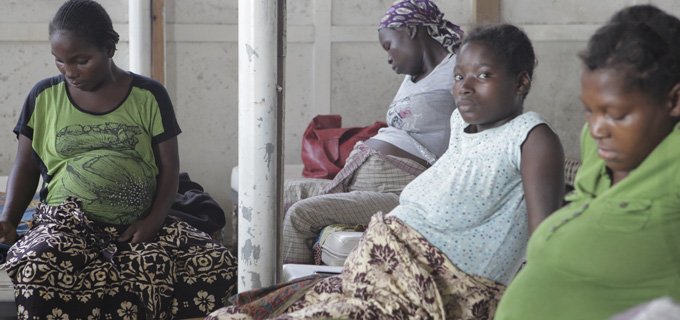Mefloquine Fails to Replace Sulphadoxine-Pyrimethamine for Malaria Prevention During Pregnancy
PLoS Medicine publishes the results of two multicentre trials that demonstrate the need to find a new alternative drug to treat pregnant women in Africa
24.09.2014
The results of two large randomized controlled trials conducted in Africa just published in PLoS Medicine conclude that mefloquine cannot be recommended as an alternative drug for malaria prevention in HIV-negative and HIV-positive pregnant women. These two studies were led by Clara Menendez, director of the ISGlobal Maternal, Infant and Reproductive Health Initiative .
Pregnant women and their unborn children are at a high risk for complications from malaria infection, and finding new treatment options is important because the malaria parasites are becoming increasingly resistant to the existing WHO-recommended drug sulphadoxine-pyrimethamine (SP). In addition, SP-based treatments are not recommended for HIV positive women because of problematic interactions between SP and a drug called cotrimoxazole which is routinely given to HIV-positive individuals to prevent secondary infections.
Suitable drugs for intermittent preventive treatment during pregnancy (IPTp) must be safe for the mother and the fetus and able to be given during regular antenatal care visits while providing long-lasting protection. The antimalarial drug mefloquine (MQ) is a candidate thought to meet these criteria, and is not known to interact with cotrimoxazole.
The first trial compared the currently recommended IPTp regimen with two different formulations of MQ in 4,749 HIV-negative pregnant women. The second trial compared three doses of MQ with a placebo in 1,017 HIV-positive pregnant women who also received cotrimoxazole. Both trials found that MQ can reduce malaria infections and improve overall health in pregnant women, compared to either SP (trial 1) or placebo (trial 2).
However, results from trial 1 indicate that neither of the two MQ regimens was better than SP at preventing low birth weight, and tolerability for MQ was poorer than for SP (with more participants in the MQ groups reporting nausea and dizziness). Trial 2 showed that MQ recipients had less parasitemia than placebo recipients, no difference in adverse pregnancy outcomes or in low birth weight between the two groups, and poorer tolerability in the MQ group than the placebo group. Trial 2 also found that women in the MQ group had higher HIV viral loads at delivery than women in the placebo group and were more likely to transmit HIV to their child around the time of birth. As this result was based on an unplanned exploratory analysis, the question of whether MQ interferes with HIV suppression needs to be studied further before definite conclusions can be drawn.
In view of their results, the authors conclude that MQ at the dose used in this study cannot be recommended as an alternative to SP in HIV-negative pregnant women, nor for malaria prevention during pregnancy in HIV-positive women.
Research Article 1
Citation: González R, Mombo-Ngoma G, Ouédraogo S, Kakolwa MA, Abdulla S, et al. (2014) Intermittent Preventive Treatment of Malaria in Pregnancy with Mefloquine in HIV-Negative Women: A Multicentre Randomized Controlled Trial. PLoS Med 11(9): e1001733. doi:10.1371/journal.pmed.1001733
http://www.plosmedicine.org/article/info%3Adoi%2F10.1371%2Fjournal.pmed.1001733
Research Article 2
Citation: Citation: González R, Desai M, Macete E, Ouma P, Kakolwa MA, et al. (2014) Intermittent Preventive Treatment of Malaria in Pregnancy with Mefloquine in HIV Infected Women Receiving Cotrimoxazole Prophylaxis: A Multicenter Randomized Placebo-Controlled Trial. PLoS Med 11(9): e1001735. doi:10.1371/journal.pmed.1001735
http://www.plosmedicine.org/article/info%3Adoi%2F10.1371%2Fjournal.pmed.1001735



